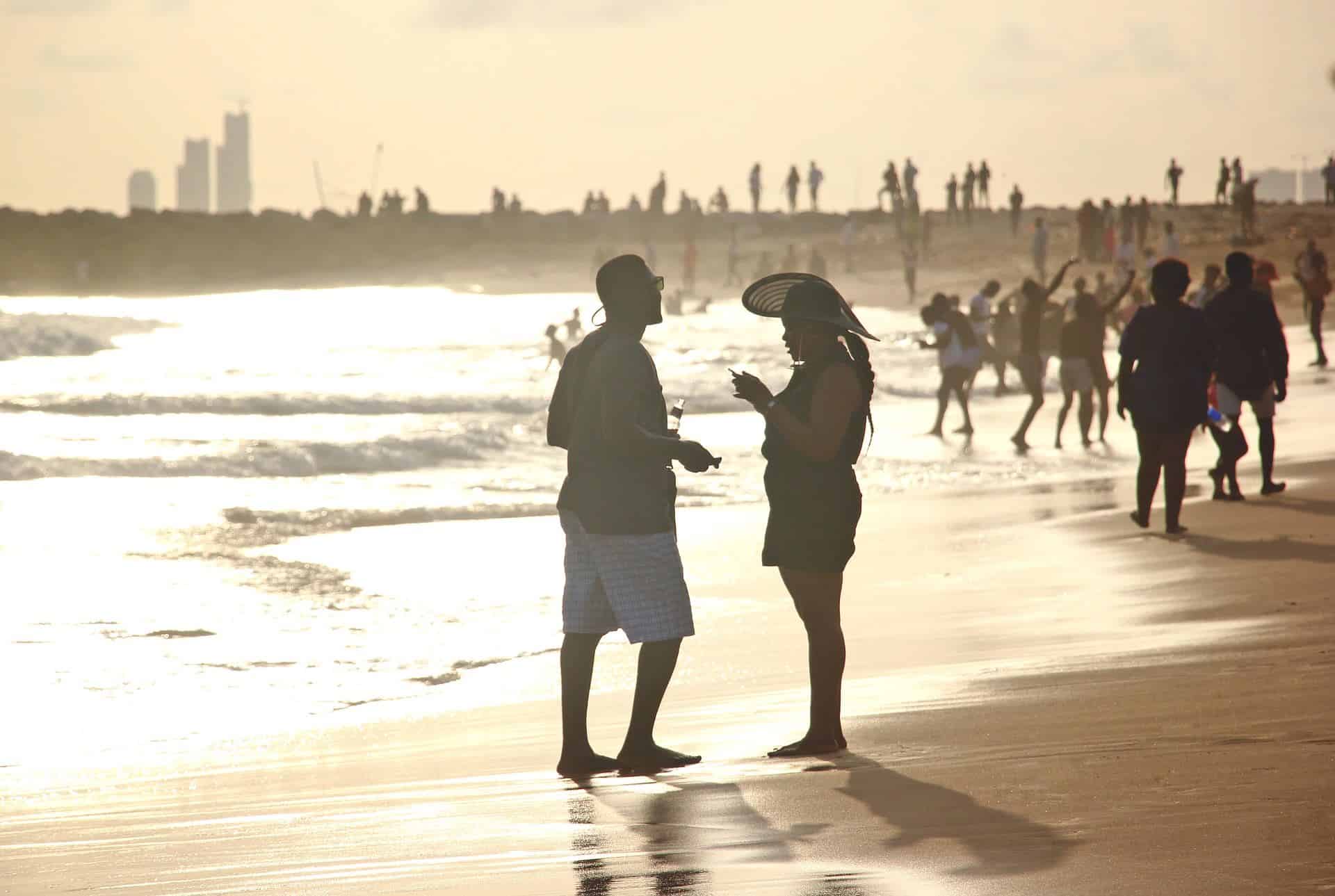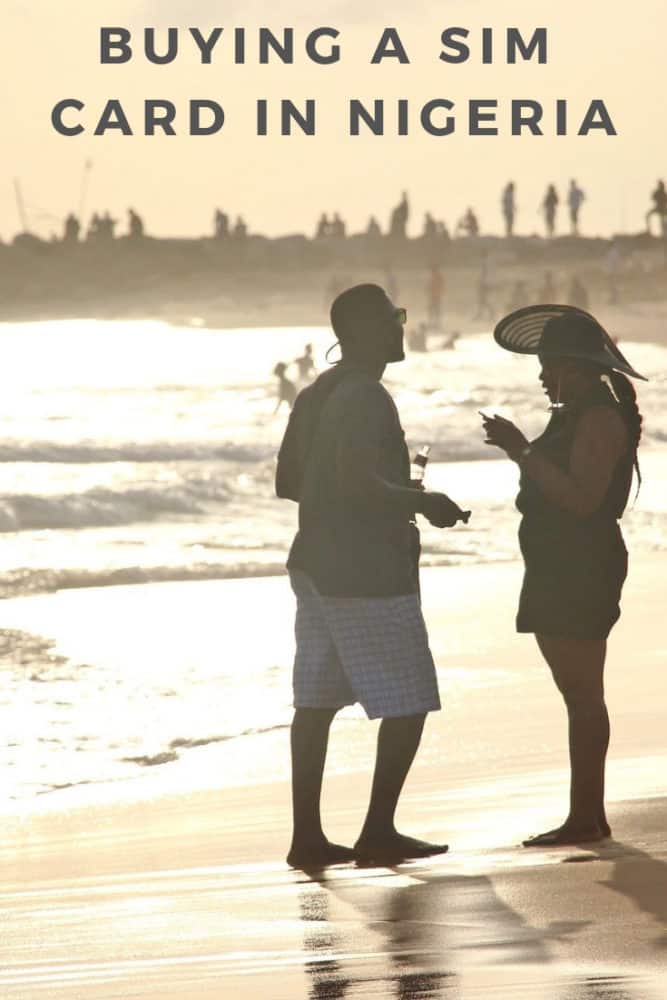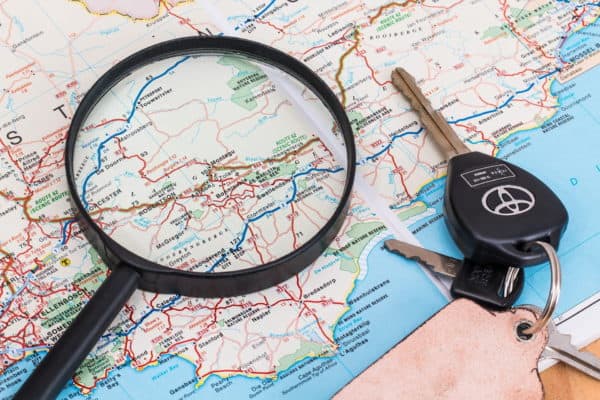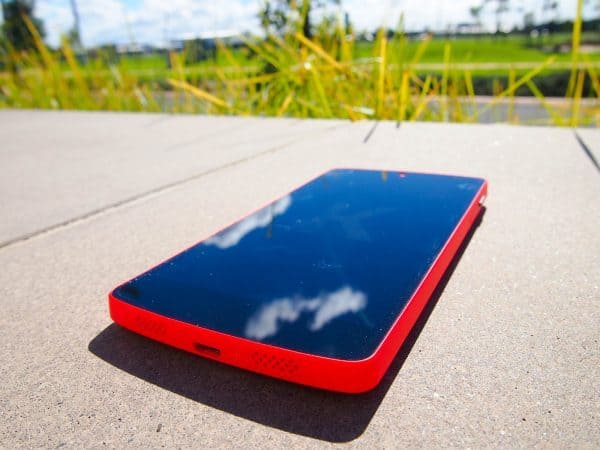Buying a SIM Card or eSIM in Nigeria
We may earn a commission from purchases you make after clicking links on this site. Learn more.When I told my friends I was traveling to Nigeria to help with a documentary, I got all the inevitable questions. Like, was there a prince involved? Did I have to send money via Western Union? Was I worried about Ebola, AIDS, or being mugged? My answer to all of them was no.
I understand my friends’ concerns, thanks to the well-earned negative stereotype associated with Nigeria, but there’s plenty of good in the country as well.
The main reason I visited was to cover the country’s federal election. People I talked with know the system is corrupt, and I saw an engaged and educated population doing their best to improve their country.
Everyone I met was eager to vote, in the hope of making a meaningful change. Despite being chaotic due to the crowds, people at the polling places were peaceful and patient even in the 40 degree Celsius heat.
Costs are generally cheap in Nigeria and that’s as true of SIM cards as anything else. Nigeria has the most developed, largest, and most competitive cellular network in Africa. Because of that intense competition, the carriers work hard to attract business.
They offer bonuses, free data, and incentives to existing customers to remain on their networks. Bonus offers arrive by text, requiring just a text response to activate.
English is the most commonly spoken language in Nigeria, and all the official texts from the major networks were written in it. This made it much easier for me to differentiate a bonus offer from a low data warning!
Travel eSIMs are also available for Nigeria: they’re much more convenient to buy and setup, and work as soon as you arrive in the country, but the cost is noticeably higher.
Companies
The four main networks in Nigeria are operated by MTN Nigeria, Glo Mobile, 9mobile, and Airtel. I also included Ntel in my list — the company isn’t a major player and has service only in Abuja, Lagos, and Port Harcourt, but is the only one with unlimited data options.
- MTN Nigeria has the most popular network, with 35% of subscribers. The South African company has good coverage and is investing heavily in 4G/LTE infrastructure.
- Glo Mobile (by Globacom) is a privately-owned Nigerian company with low data prices and around 24% of the market.
- Airtel Nigeria (by Bharti Airtel) is a subsidiary of Airtel India, and has 21% of subscribers.
- 9mobile is Nigerian-owned, and was previously known as Etisalat Nigeria. It has 15% of the market.
- Ntel’s limited coverage area and restrictions on handsets approved for VoIP or VoLTE services mean it isn’t a great option for most travelers. Still, if you need unlimited data, are staying only in the major cities, and don’t care about VoIP, it’s an option.
My reason for being in Nigeria was to help with the production of a documentary, which influenced my decision about which SIM card to buy. Needing to do a Facebook Live broadcast an hour outside of Abuja, my local fixer suggested MTN would have the best service in the area, so that’s who I went with.
Travel eSIM for Nigeria
As with all travel eSIMs, the process of getting set up with one for Nigeria is much faster than buying and registering a physical local SIM card (below). It’d be unlikely to take more than five minutes start to finish: I’ve done it in less than two in the past.
Because mobile service is so cheap in Nigeria, though, you’ll pay more with a travel eSIM company than a local phone company. It’s not like it’s prohibitively expensive or anything, but it’s certainly more.
If the idea of getting set up before leaving home appeals, though, I’d recommend using Nomad. For all but the smallest data packs, it’s the cheapest of the companies I’ve used and would recommend to others.
Just remember that there’s no local phone number on offer here: like the vast majority of travel eSIMs out there, it’s data-only. You’ll need to use WhatsApp, Google Voice, or some other way of making and receiving calls.
How to Buy a Prepaid SIM Card in Nigeria
SIM cards for all the major networks are available at the Abuja International Airport, and for most travelers, buying at the airport will be the easiest option. Prices are the same wherever you go, so there’s no advantage to waiting until you get into town.
As I didn’t know which carrier would best fit my needs when I arrived, however, I didn’t buy my SIM when I landed. Instead, I picked it up later at an MTN store in the lobby of the Transcorp Hilton in downtown Abuja. The main carriers have outlets everywhere, even in the poorer areas where I was staying.
I never found any grocery or convenience stores anywhere, so have no idea if SIM cards are sold there, or honestly, if supermarkets even exit in Abuja. I stayed in a poor neighbourhood without many services.
Abuja is the political capital of Nigeria, but Lagos is a much richer city, and likely has a better shopping experience.
Need travel insurance for Nigeria?
Need travel insurance for Nigeria?
A passport was required to get a SIM card, and I had to fill out some paperwork with basic information such as home and local addresses. The place I was staying literally didn’t have an address, so I left that space blank and wasn’t questioned about the omission. It’s OK to use the name of your hotel as a local address.
The entire process took about 25 minutes, much of which was waiting for registration of the new number to go through. The system moves slowly in Nigeria. The representative was polite and professional, and apologized for the delays.
Once registration was complete the SIM activated immediately, and I had a solid connection as I left the store.
Prepaid SIM and eSIM Costs
MTN
I knew I’d use plenty of data during my stay, so opted for a 40GB package valid for 30 days. This cost 11,000 NGN ($13), plus an extra 100 NGN for the SIM card.
If you need a different amount of data, MTN offers many other options. 8GB costs 3000 NGN (~$3.50), for instance, and is also valid for 30 days. Monthly packs go all the way up to a whopping 200GB, which costs 30,000 NGN. Even larger packs are available with two, three, or twelve-month validity.
The packages include some voice minutes: if you need more (or texts), just add a bit of extra credit via a top-up card when you purchase or at any other time. I rarely need voice or SMS, so typically skip it wherever I go.
MTN also has packages for social media if that’s your vice. Various bundles for Facebook, Instagram, WeChat, WhatsApp, and others are available, for 150 NGN (~$0.20) each per month.
Glo Mobile generally has the lowest prices, and sells a similar amount of data for as little as half the above rate. Coverage is still quite reasonable, especially in the towns and cities, so this may be a better option if you’re on a tight budget.
Inflation is quite high in Nigeria, so expect prices and exchange rates to change regularly no matter which company you go with.
Nomad
Like I mentioned up top, prices with any of the travel eSIMs are higher than local rates in Nigeria. You’re paying a bit for convenience here, though it’s hardly a fortune for most travelers. Nomad is the best option for anything except the smallest data packs.
It’s not the only game in town, of course: we’ve compared many other companies in the past, and here’s how the best ones stack up price-wise in Nigeria.
Topping Up
MTN
Voucher-based top-ups are available everywhere from street vendors to official retail stores, but can only be done online with a Nigerian credit card. Considering my SIM came with so much data, I didn’t need to top up during my time in the country.
Customers are encouraged to renew existing plans, with incentives including bonus data for topping up before the current bundle expires. These bonuses can be worth up to 2.5 times the value of the top-up purchased, depending on the network.
Nomad
Topping up with Nomad (or any of the other travel eSIM companies) is done by logging into the website or app. You just select your Nigeria eSIM, hit the top-up button, and buy the same package again.
The top-up packs have exactly the same pricing and duration as the original eSIMs: there’s little difference between topping up your current eSIM and buying a new one, other than not having to activate it.
Get regular updates from the world of travel tech and remote work
News, reviews, recommendations and more, from here and around the web
Coverage and Data Speeds
I had great download speeds in the city of Abuja and the surrounding villages, but didn’t get much further than about 50km away from the center of the city. Speeds and coverage levels would almost certainly be reduced in more remote areas.
I always had a 4G/LTE connection, and speeds were more than sufficient for streaming Youtube and video chat. The signal never dropped unless I was inside a concrete building.
You’ll likely get better coverage with a Nomad eSIM than any physical SIM, since it can use the networks of either MTN or Airtel as needed.
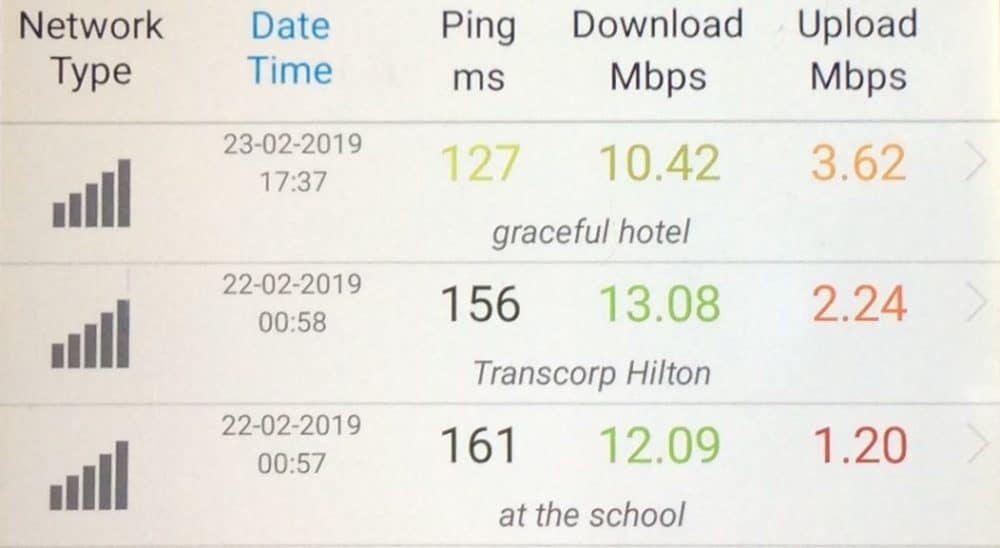
Check out our guides to buying SIM cards in many other countries here.

